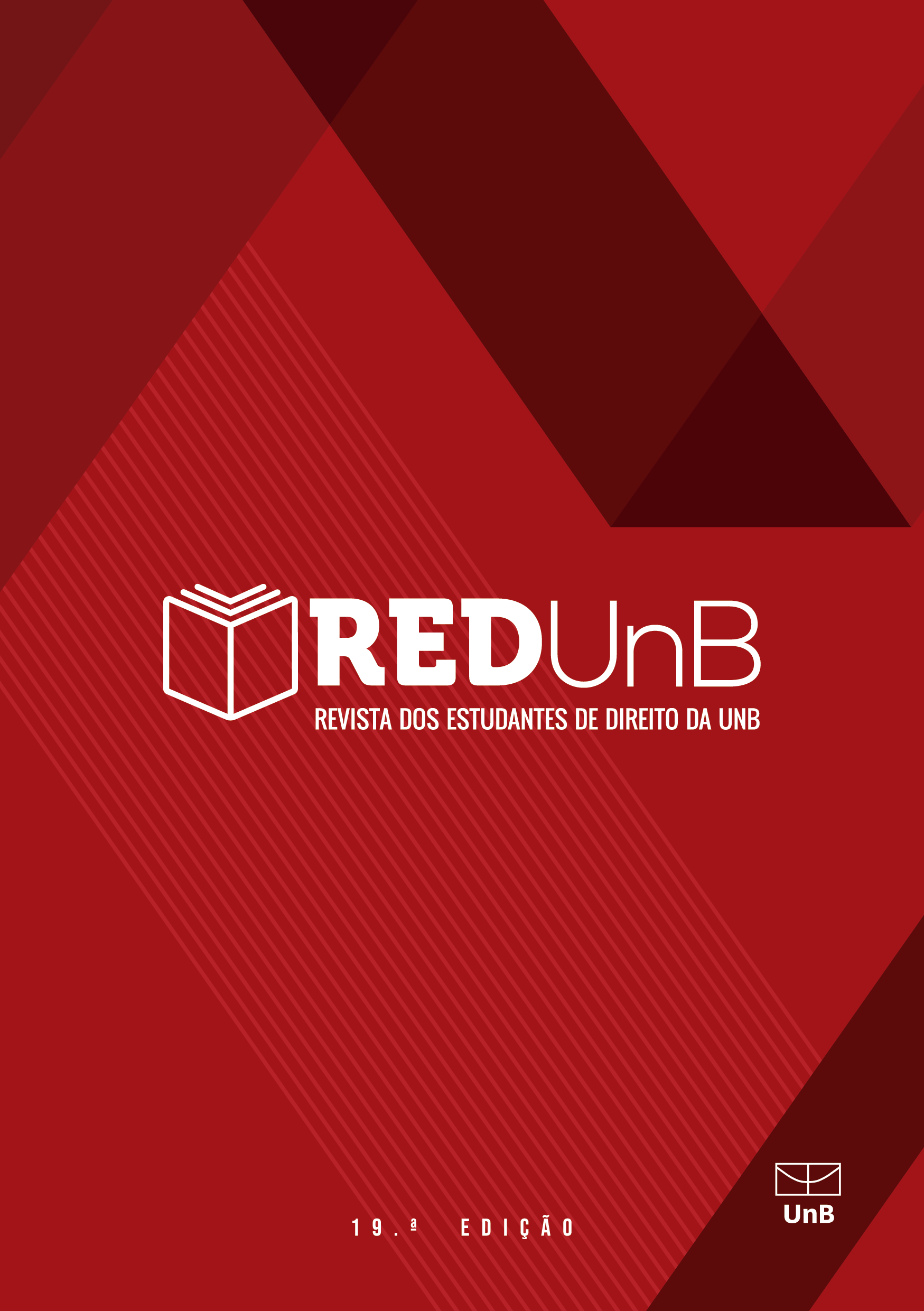A DISCUSSION ABOUT THE “ONLY CORRECT ANSWER” FROM THE THEORIES OF DWORKIN, ALEXY AND FINNIS LEGAL REASONING
Keywords:
Philosophy of Law, Theory of Law, Legal reasoning, Dworkin, Alexy, FinnisAbstract
This study aims to analyze the extent to which practical reasoning in general and legal reasoning in particular are capable of determining a single correct answer. In order to answer this question, using the bibliographic review as a methodology, the work presents a description of the affirmative thesis of the only correct answer in Dworkin. Subsequently, it addresses the criticisms of the affirmative thesis formulated from the theories of law by Alexy and Finnis. It was concluded that the distinction made by Finnis between the technical dimension and the moral dimension of legal reasoning is extremely useful to explain the possibilities and limitations of the reason for arriving at a single correct answer. Thus, on the technical side of legal reasoning, it would be possible to identify an option as the most correct or fair, in which there would be a unit of measurement that would make it possible to determine with great precision which solution best fits the specific case. Thus, determining the correct legal responses is certainly a problematic issue in the moral dimension of legal reasoning, when the legal interpreter may have several morally acceptable options that are immeasurable.
Downloads
References
AARNIO, Aulis. Essays on the Doctrinal Study of Law. Dordrecht: Springer, 2011.
ALEXY, Robert. On the Thesis of a Necessary Connection between Law and Morality: Bulygin’s Critique. Ratio Juris: International Journal of Philosophy of Law and General Jurisprudence, v. 13, n. 2, p. 138-147, 2000.
ALEXY, Robert. The Argument from Injustice: A Reply to Legal Positivism. Transl. by B. Litschewski & L. P. Stanley. Oxford: Oxford University Press, 2002.
ALEXY, Robert. Sistema jurídico, principios jurídicos y razón práctica. Trad. de Manuel Atienza. Doxa: Cuadernos de Filosofía del Derecho, Alicante, n. 5, p. 139-151, 1988.
BIX, Brian. Jurisprudence: Theory and Context. 7th ed. Durham: Carolina Academic Press, 2015.
BIX, Brian. Law, Language, and Legal Determinacy. Oxford: Oxford University Press, 1993.
BRASIL. [Constituição (1988)]. Constituição da República Federativa do Brasil: promulgada em 5 de outubro de 1988. 4. ed. São Paulo: Saraiva, 19XX.
CASAUBÓN, José. El conocimiento jurídico. Buenos Aires: EDUCA, 1984.
DWORKIN, Ronald. A Matter of Principle. Cambridge: Harvard University Press, 1985.
DWORKIN, Ronald. Justice in Robes. Cambridge: Harvard University Press, 2006.
DWORKIN, Ronald. Taking Rights Seriously. Cambridge: Harvard University Press, 1977.
FERNÁNDEZ SABATÉ, Edgardo. Los grados del saber jurídico. Tucumán: Universidad Nacional de Tucumán, 1968.
FINNIS, John. Aquinas: Moral, Political, and Legal Theory. Oxford: Oxford University Press, 1998.
FINNIS, John. Aristóteles, Santo Tomás y los absolutos morales. Trad. de Carlos. I. Massini-Correas. Persona y Derecho, Navarra, n. 28, p. 9-26, 1993.
FINNIS, John. Commensuration and Public Reason. In: FINNIS, John. Reason in Action. Oxford: Oxford University Press, 1990a.
FINNIS, John. Derecho natural y razonamiento jurídico. Trad. de Carlos I. Massini-Correas. Persona y Derecho, Navarra, n. 33, p. 9-39, 1995.
FINNIS, John. Legal Reasoning and Practical Reason. In: FINNIS, J. Reason in Action: Collected Essays. Oxford: Oxford University Press, 2011a.
FINNIS, John. Moral Absolutes: Tradition, Revision, and Truth. Washington: The Catholic University of America Press, 1991.
FINNIS, John. Moral Absolutes in Aristotle and Aquinas. In: FINNIS, John. Reason in Action. Oxford: Oxford University Press, 1990b.
FINNIS, John. Natural Law and Natural Rights. 2nd ed. Oxford: Oxford University Press, 2011b.
FINNIS, John. Natural Law and Legal Reasoning Natural Law. Cleveland State Law Review, v. 38, n. 1, p. 1-13, 1990c.
FINNIS, John. Reason in Action: Collected Essays. Oxford: Oxford University Press, 2011c.
GUASTINI, Riccardo. Interpretare e argomentare. Milano: Giuffrè, 2011.
GUASTINI, Riccardo. Teoría e ideología de la interpretación constitucional. Trad. de M. Carbonell e P. Salazar. México: Universidad Nacional Autónoma de México, 2008.
HART, H. L. A. The Concept of Law. 2nd ed. Oxford: Clarendon Press, 1994.
KRESS, Ken; ANDERSON, Scott. Dworkin in Transition. The American Journal of Comparative Law, v. 37, n. 2, p. 337-351, Spring 1989.
MAGNAVACCA, Silvia. Léxico técnico de filosofía medieval. Buenos Aires: Miño y Dávila, 2005.
MASSINI-CORREAS, Carlos Ignacio. Dworkin, Finnis y la “única respuesta correcta”. Cuadernos de Extensión Jurídica, Santiago, n. 13, p. 95-117, 2006.
MASSINI-CORREAS, Carlos Ignacio; GARCÍA-HUIDOBRO, Joaquín. Valoración e inclusión en el derecho: La máxima ‘lex injusta non est lex’ y la iusfilosofía contemporánea. In: CIANCIARDO, Juan, et al. Razón jurídica moral: Estudios sobre la valoración ética en el Derecho. México: Porrúa, 2011.
RAZ, Joseph. Legal Principles and the Limits of Law. Yale Law Journal, v. 81, n. 52, p. 823-854, 1972.
RAZ, Joseph. Review: Dworkin: A New Link in the Chain. California Law Review, v. 74, n. 3, p. 1103-1119, May 1986.
RHONHEIMER, Martin. The Perspective of the Acting Person: Essays in the Renewal of Thomistic Moral Philosophy. Washington: The Catholic University of America Press, 2008.
SHAPIRO, Scott. The ‘Hart-Dworkin’ Debate: A Short Guide for the Perplexed. In: RIPSTEIN, Arthur (ed.). Ronald Dworkin. Cambridge: Cambridge University Press, 2007.
SOPER, E. Philip. Legal Theory and the Obligation of a Judge: The Hart/Dworkin Debate. Michigan Law Review, v. 75, n. 3, p. 473-519, 1977.
TOMÁS DE AQUINO. Comentário à Ética a Nicômaco de Aristóteles. Edição, tradução e notas de Paulo Faitanin e Bernardo Veiga. Rio de Janeiro: Mutuus, 2015.


